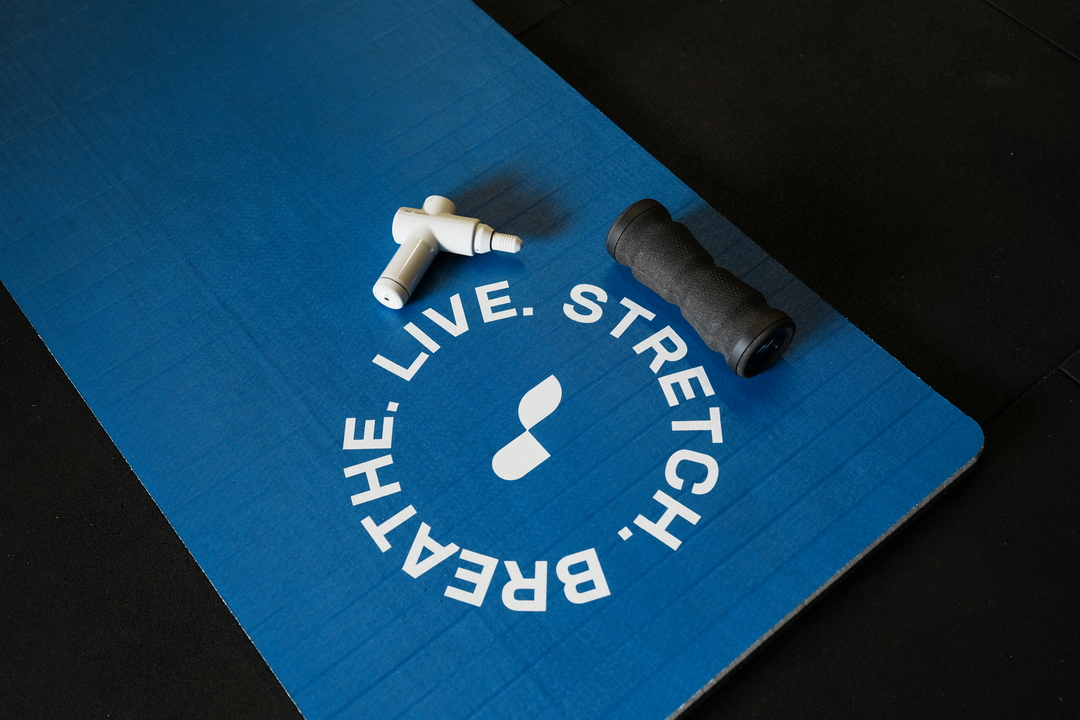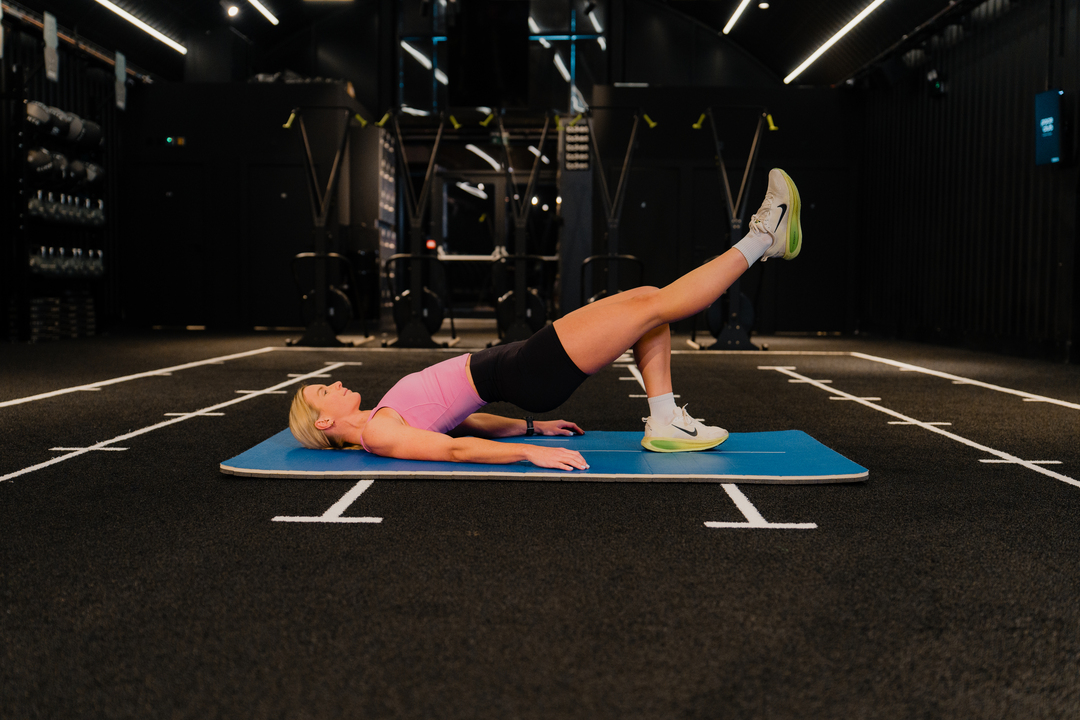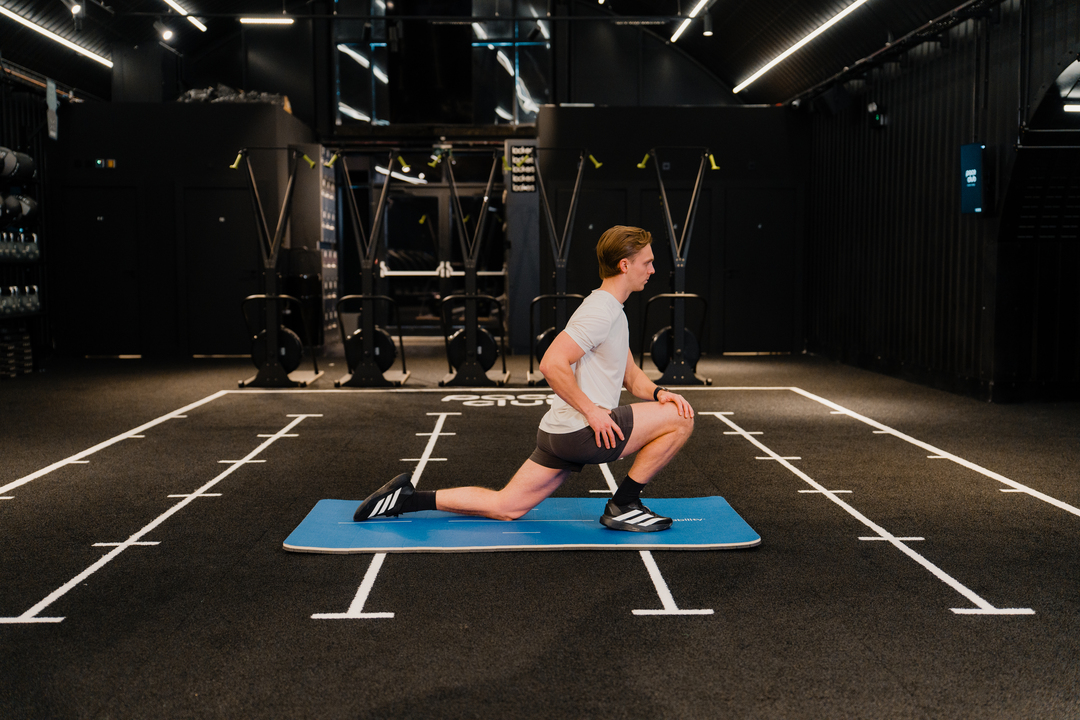Athletes often face the challenge of balancing their physical and mental performance. As you prepare for a competition, much of your focus is on your physical preparation: How can I improve my strength and conditioning? What are the best drills to hone my skills? While these are essential questions, they ignore the fact that, at some point, every athlete experiences a mental hurdle. Athletic performance counseling helps you tackle these challenges head-on by developing the mental resilience to overcome them. How to Increase Athleticism? In this article, we’ll explore the benefits of athletic performance counseling for improving mental toughness and unlocking your full athletic potential.
To help athletes achieve their performance goals, Pliability offers a mobility app that provides valuable resources and tools for overcoming mental hurdles. The app's protocols and guided routines help you unlock your physical and mental performance, reduce the risk of injury, improve your resilience to stress, and get back to performing your best.
What is Athletic Performance Counseling and Its Significance?

Athletic performance counseling helps athletes enhance mental skills like:
- Focus
- Confidence
- Resilience
Mental conditioning is as critical as physical training for achieving peak performance, preventing burnout, and recovering from setbacks. Athletic performance counseling represents a specialized niche within the broader discipline of sport psychology, focusing on optimizing athletes' mental and emotional well-being to enhance their performance. It is a field that combines psychological theory and techniques with a deep understanding of the physical demands of sport, offering tailored support to athletes striving for excellence.
The Role of Performance Counseling in Overcoming Mental Blocks
Psychological barriers, such as fear of failure, performance anxiety, and loss of motivation, can significantly hinder an athlete's ability to perform. Athletic performance counseling is crucial in identifying and employing targeted strategies to overcome these barriers. By addressing the mental and emotional aspects of sports performance, counselors for athletes help individuals tap into their full potential, leading to improved performance outcomes.
Building Mental Resilience
Athletes face immense pressure, from performance expectations to competition’s highs and lows. A counselor can equip athletes with the tools to build mental resilience, enabling them to:
- Bounce back from setbacks
- Maintain a positive outlook
- Persist through challenges
Enhancing Focus and Concentration
In the heat of competition, the ability to maintain focus and block out distractions is crucial. Athletes’ counselors help sharpen these skills, ensuring athletes can stay present and perform at their best, regardless of external pressures.
Managing Performance Anxiety
Anxiety and nerves can hinder an athlete's ability to perform. Through various psychological techniques, such as relaxation strategies and cognitive-behavioral therapy, counselors help athletes manage anxiety levels, transforming nervous energy into a focused drive for success.
Boosting Confidence and Self-Belief
Confidence is key in any athletic endeavor. A counselor helps athletes build and maintain a strong sense of self-belief, ensuring they approach their sport confidently, which is essential for achieving peak performance.
Developing Effective Communication Skills
Team sports, in particular, require excellent communication skills. Counselors for athletes work on:
- Enhancing these skills
- Facilitating better teamwork
- Improving the overall dynamics within a team setting
Addressing Personal and Emotional Issues
Athletes are not immune to personal and emotional challenges. Counselors provide a supportive environment to address and work through these issues, ensuring they do not negatively impact performance.
Navigating Career Transitions
Transitions can be challenging, whether to a higher level of competition or retirement from sport. A counselor for athletes supports individuals through these changes, helping them adjust to and thrive in new roles or life stages.
Related Reading
- Benefits of Sports Massage
- How to Improve Athletic Performance
- Sports Performance Analysis
- Athletic Performance Testing
- How Long Does Alcohol Affect Athletic Performance
- How Does Iron Deficiency Affect Athletic Performance?
5 Ways Athletic Performance Counseling Can Elevate Your Game

1. Goals That Matter: How Setting Athletic Performance Goals Can Help You Improve
Goal setting is one of sports psychologists’ most frequently used mental tools to improve athletic performance. The idea of using goal-setting techniques to improve performance psychology in all areas of life has been utilized for some time. In 1985, scholars Edwin A. Locke and Gary P. Latham suggested that their Goal Setting Theory (GST) was ideally suited for sports.
These researchers saw that setting difficult but attainable goals could lead to higher sports performance. According to Jeremy Walsh of Xoombi, goals should be written down as a method that leads to focused, calculated physical actions. Today, specific goal setting and the motivation it provides to improve sports performance are ubiquitous among athletes.
2. Stress Management: Dealing with Performance Anxiety
Sports at the elite levels have the potential for high levels of stress and anxiety. Employing a range of psychological strategies can be beneficial in successfully managing stress and performance anxiety and improving athletes' overall mental health in high-pressure situations. Sports psychologists utilize pressure-relieving techniques to combat the adverse effects of stress and anxiety. These techniques range from the very simple to the more complicated.
Typical tools include:
- Proper nutrition: Eating properly and ensuring adequate hydration can aid athletes in coping with mental health issues.
- Regular sleep: A regular sleep schedule can aid in stress reduction.
- Relaxation techniques: Controlled breathing, muscle stretches, and muscle relaxation effectively negate the adverse effects of stress.
- Trigger identification: Recognizing mental triggers, such as those situations that cause discomfort or anxiety, is essential. When athletes are aware of them, they can deal with mental health issues more effectively.
- Positive coping strategies: Physical exertion can lead to endorphins, which help release tension.
- Mindfulness: Meditation techniques can help athletes become more aware of thoughts, feelings, and body sensations.
Using one or more of these tools can aid the advanced athlete in performing required motor skills at the highest level without any interference from stress or anxiety. They will also prepare the recipient to self-regulate and adapt appropriately to a changing environment.
3. Training Your Brain: The Mental Side of Athletic Performance
A sports psychologist teaches professional athletes to use various mental skills to practice advanced motor tasks away from the playing field or sports laboratory.
Some of these techniques include:
- Positive self-talk: Positive self-talk in sports helps you stay in the present and not look too far ahead while utilizing positive feelings and successful outcomes.
- Successful visualization: Visualization is a form of mental practice in which a competitor imagines that physical skills are performed perfectly. It is sometimes referred to as “focused daydreaming.”
- Deep breathing: Sometimes called “diaphragmatic breathing,” athletic competitors take slow, controlled, and deep inhalation breaths. Upon exhaling, calmness and quietness should invoke a relaxed state.
- Progressive (willed) muscle relaxation: Progressive muscular relaxation has been used since the 1930s, but sports psychologists have only recently adapted the technique for elite athletes. They shorten the traditional version to have their subjects relax in as few as 30 seconds. In this manner, athletic competitors can experience the release of muscle tension and move on to the next phase of their psychological skills training.
4. Improving Self-Confidence and Breaking Through Mental Barriers
Self-confidence is crucial for athletic success. Sports psychologists use counseling to strengthen athletes’ trust in their judgment and reinforce the belief that motor skills can be performed successfully. This approach helps eliminate self-defeating thoughts and builds lasting self-confidence. While factors like performance outcomes, external expectations, and talent can influence confidence, they are largely outside an athlete’s control.
True self-confidence fosters realistic self-expectations, effective communication, and the mental resilience to manage criticism. Mental health challenges can significantly impair performance, and forcing athletes to “push through” these issues is counterproductive. As Dr. Sacco of the Cleveland Clinic advises, a tailored psychological rehabilitation plan, using specific cues at each step, is essential. For example, tennis players might run in place after a mistake to reset their focus and maintain movement during play.
5. Helping Athletes to Return to Competition Following Injuries
Significant injuries are among the greatest threats to the success of skilled athletes, often leading to fears of career-ending consequences. After completing physical rehabilitation and being medically cleared to return, athletes rely heavily on sports psychologists to rebuild the mental skills necessary for competition.
Often initiated through self-referral, psychological rehabilitation programs are critical in addressing the emotional and cognitive challenges of recovery. According to the Association for Applied Sport Psychology, athletes and coaches should be trained in these skills. While sports medicine professionals handle the physical aspects of injury, sports psychologists focus on restoring mental readiness, such as:
- Diagnosis
- Treatment
- Surgery
- Rehabilitation
- Return-to-play timelines
Before returning to competition, athletes must demonstrate confidence in their ability to perform despite minor pain, readiness to give full effort, focus without distraction from the injury, and belief in their physical resilience. This mental conditioning is essential; without it, many athletes would be unable to continue their careers after major injuries.
Why These Techniques Work
The effectiveness of these techniques lies in their ability to enhance the psychological flexibility and resilience of athletes. Goal setting provides a tangible sense of direction, crucial for sustained motivation and effort. Visualization and mental rehearsal strengthen neural pathways similar to physical practice, enhancing skill acquisition and confidence.
Mindfulness and relaxation techniques reduce stress and anxiety, enabling athletes to maintain focus and composure. Cognitive-behavioral strategies foster a positive and adaptive mindset, which is crucial for overcoming setbacks and challenges.
Related Reading
- Adaptogen Benefits for Athletes
- How to Improve Running
- How to Get Faster at Sprinting
- How to Run a Faster Marathon
- How to Increase Stamina for Running
- How to Improve Agility
Psychotherapy Methodologies for Athletic Performance

Cognitive behavioral therapy is one of the best-known psychological treatments today. It focuses primarily on the way your perceptions and thoughts affect your behavior. For many people, CBT offers an effective way to identify their challenges so that they can implement coping strategies. In CBT, your therapist helps you identify inaccurate and negative thoughts and challenges.
Once you recognize the thoughts, you can evaluate and respond to them more flexibly. CBT is an evidence-based treatment that can enhance your performance in almost any aspect of life, including sports.
We use this technique to help athletes of all levels:
- Boost self-confidence
- Improve concentration and focus
- Minimize distractions
- Handle negative emotions effectively
- Learn goal-setting strategies
- Hone imagery skills
Some benefits of CBT are direct. Imagery skills can help you visualize what you want to achieve in your sport, and goal setting can help you get there. Other benefits are indirect. For example, CBT can help you address anxiety and low self-esteem, which can have a positive effect on your game.
MBT: A Playbook for Understanding Yourself and Others
Mentalization-based therapy (MBT) combines the tenets of several therapeutic techniques, including CBT. It focuses on identifying and understanding one’s mental state and the mental states of those around one. You also learn how your state of mind influences your behavior. Like CBT, MBT is an evidence-based therapy that can benefit sports performance.
We recommend MBT for athletes who want to:
- Overcome mental blocks
- Develop emotional regulation skills
- Identify the emotions and intentions of competitors
- Effectively make better strategic decisions
MBT can also be very effective for athletes who have suffered setbacks. Maybe you made a bad call that cost you a win, or missed a shot you know you should have made. MBT helps you identify and address the emotions around those mental blocks so that you can move past them.
Improve Your Flexibility with Our Mobility App Today | Get 7 Days for Free on Any Platform
Pliability offers a fresh take on yoga, tailored for performance-oriented individuals and athletes. Our app features a vast library of high-quality videos designed to:
- Improve flexibility
- Aid recovery
- Reduce pain
- Enhance range of motion
Pliability provides daily-updated custom mobility programs for those interested in optimizing their health and fitness. It also includes a unique body-scanning feature to pinpoint mobility issues. If you're feeling limited by pain or ability to move, Pliability aims to complement your fitness routine and help you move better.
Sign up today for 7 days absolutely for free, on iPhone, iPad, Android, or on our website to improve flexibility, aid recovery, reduce pain, and enhance range of motion with our mobility app.
Related Reading
- How to Improve Sports Performance
- Best Vitamins for Athletes
- Strength Training for Athletes
- Cross Training for Swimmers
- Cross Training for Runners
- Best Peptides for Athletic Performance
- Breathing Exercises for Athletes
- Goal Setting for Athletes








